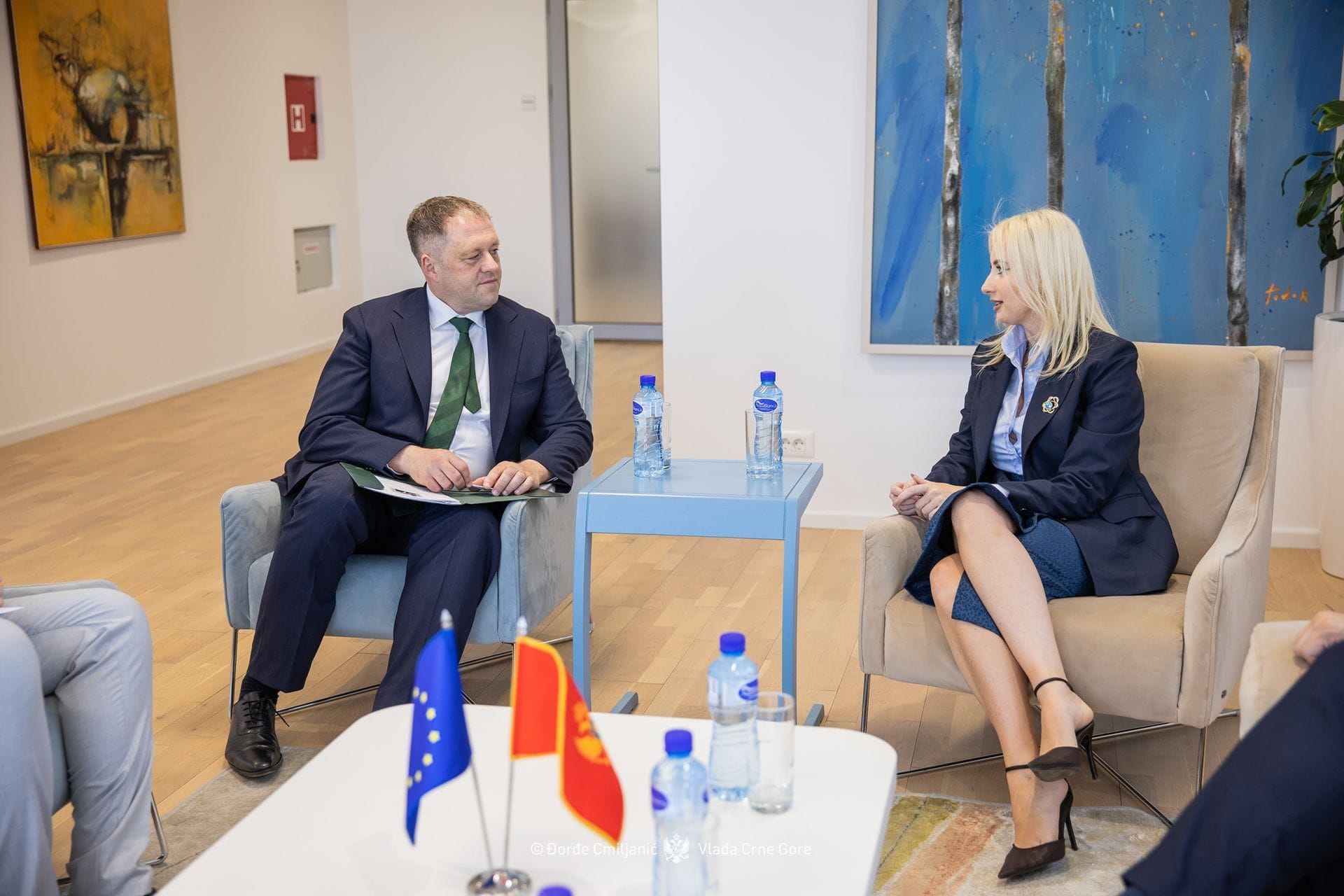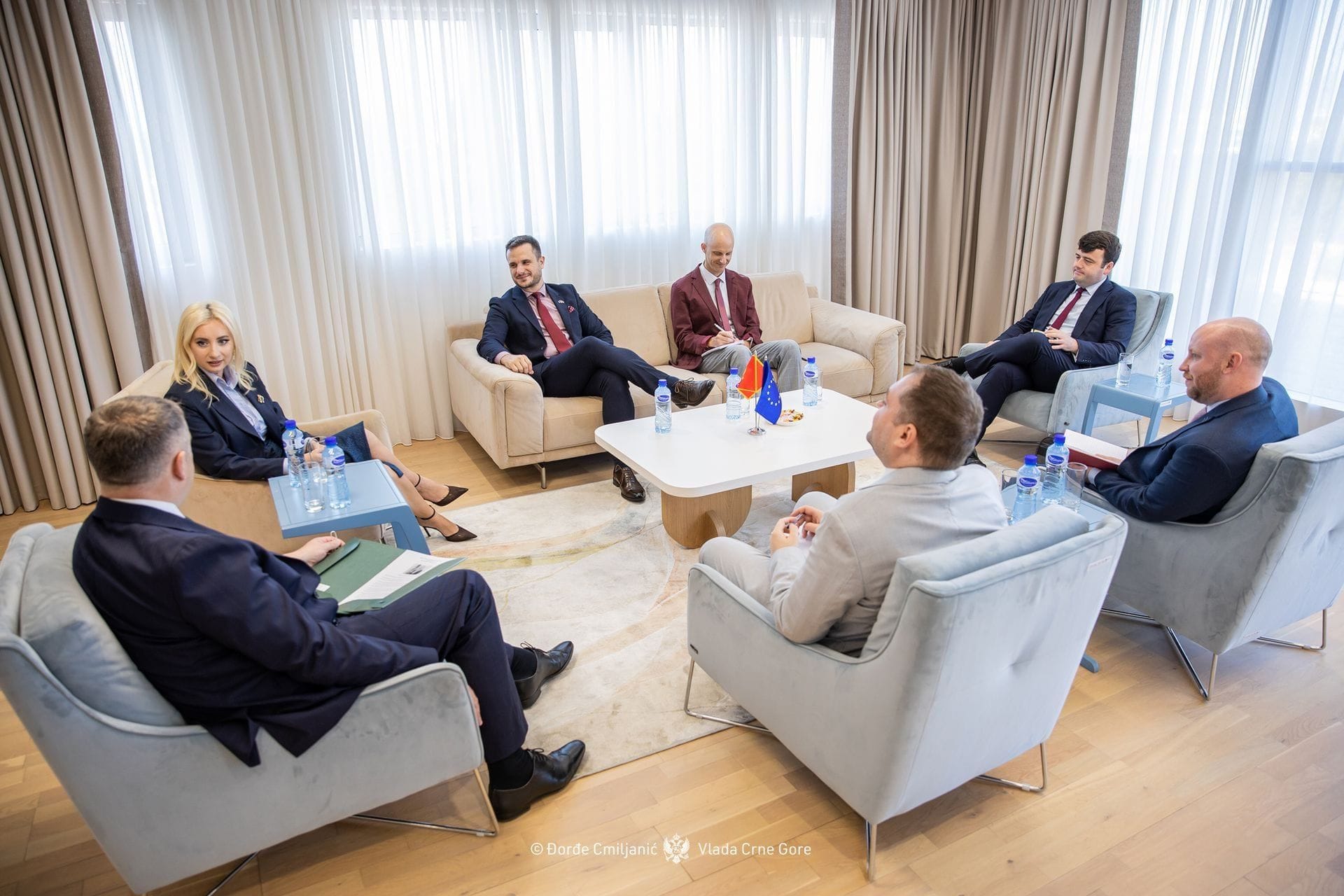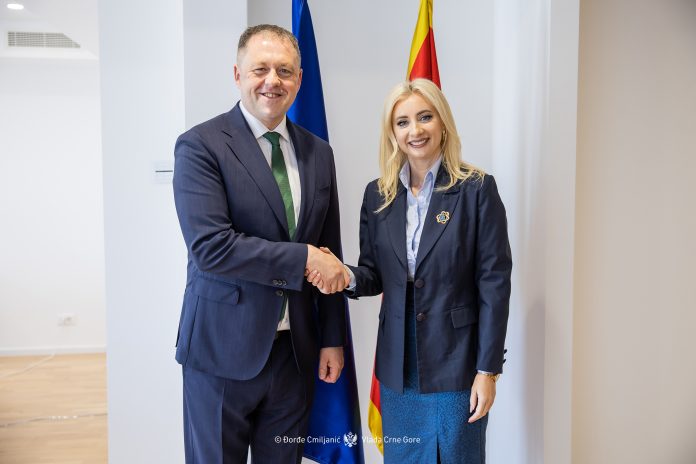“Montenegro is fully committed to closing all negotiation chapters during the Irish Presidency of the EU Council in the second half of 2026. That is our main strategic and reform goal, and we believe that with the partnership support of member states such as Ireland, we can meet the expectations of our citizens,” said the Minister of European Affairs, Maida Gorčević, at a meeting with the Minister of State for European Affairs and Defence of the Republic of Ireland, Thomas Byrne.
Minister Gorčević discussed with her Irish colleague the current situation and Montenegro’s plans in the final phase of the European Union accession process and informed him about the latest achievements within the negotiation process, emphasizing that the rule of law is the foundation of a stable and functional state system, but also the area in which the citizens of Montenegro have the greatest expectations from European integration.

A special focus of the meeting was on the fact that Ireland will hold the Presidency of the Council of the European Union in the period that Montenegro sees as crucial for closing the largest number of negotiation chapters and finalizing the technical part of the process.
“It is precisely the Irish Presidency that is the opportunity Montenegro intends to make maximum use of, with a clear goal to close all chapters by the end of 2026 and be ready for the final evaluation of the European Commission,” said Gorčević.
Minister Byrne welcomed Montenegro’s efforts so far, saying that Ireland, as a traditionally strong advocate of the EU enlargement policy, remains a firm partner of the Western Balkans, and especially Montenegro, on the European path.
He emphasized that the upcoming period of a year and a half will be extremely challenging, but also of crucial importance for achieving the strategic goal – full EU membership. In that context, he said that Montenegro can count on all necessary technical and political support from Ireland.

Sharing the positive experience of Ireland, which joined the European Union back in the early 1970s, Minister Byrne pointed to the concrete benefits of membership – from freedom of movement and access to the single market, to an increased number of foreign investments. He also emphasized the impact of membership on improving standards in areas such as the protection of human rights, environmental preservation, peace and stability, which, as he said, are of exceptional value for every member state.
The meeting also discussed initiatives to strengthen administrative capacities in the region, which Ireland supports through cooperation with the Regional School of Public Administration (ReSPA), as well as strengthening bilateral cooperation between the two countries in the context of European integration.
MINISTRY OF EUROPEAN AFFAIRS


